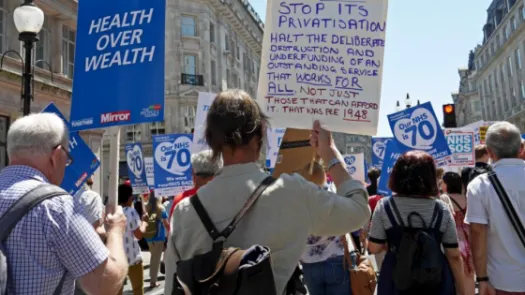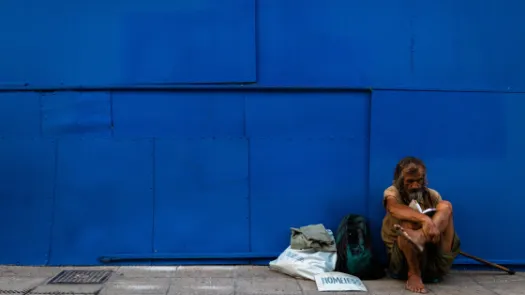Stage 1 - Applying for social benefits: facing exclusion

Picture: Christian Schnettelker
1. The process of applying for social benefits subjects people to humiliating and punishing scrutiny. It is gruelling and harmful in and of itself. It requires people to invest significant time and resources, and to disclose vast amounts of personal information. For example, people may be required to turn over troves of personal documents (such as documents that show people’s financial status, housing, income, family structure, and identity), provide biometric information or DNA, take a drug test, undergo psychological and physical assessments, face unannounced home visits, travel long distances to meet repeatedly with case workers to answer intrusive questions, disclose the paternity of their children, appear in person for check-ins at government offices, and account for decisions to purchase particular food or goods. This time-consuming process is too often counterproductive: it exposes them to heightened scrutiny that impairs their abilities to seek and engage in work, advance their training and education, or care for their families. Surrendering one's privacy and dignity by submitting to surveillance should not be a condition for receiving benefits or a design choice to deter people from applying for benefits.
2. Surveillance deters people from seeking and receiving benefits. Social benefits systems are often designed to be onerous and intrusive so as to discourage people from applying for benefits they are legally entitled to. The level of personal information people are repeatedly required to reveal, the judgement implied in the questions asked, and the way in which people are treated with suspicion while complying with numerous conditions is harmful on a psychological as well as social level.
There is a practical aspect to this as well: people face challenges in collecting the evidence required and in navigating the bureaucracies that process such evidence, which poses particular problems for people who lack literacy skills or a sufficient understanding of how these extremely complex systems work. Systems that are ‘digital by default’ can further exclude people who lack access to digital technology or the ability to use it proficiently. In addition to discouraging people from seeking benefits, particularly when the amount of benefits offered may be insufficient to adequately meet the person’s or family’s needs in the first place, these systems further stigmatise poverty.
3. By categorising people as ‘deserving’ or ‘underserving’, ‘blameworthy’ or ‘blameless’, the state justifies surveillance of the poor. The perception that some people are poor as a result of economic or social failing—rather than the intersection of broader structural, historical and cultural forms of marginalization and discrimination—helps justify the expansive and constant monitoring of lower-income people. The state will use labels, such as ‘deserving’ versus ‘undeserving’ or ‘eligible’ versus ‘ineligible,' to justify collecting the vast troves of information required to make such distinctions. This monitoring often primarily applies to cash assistance and cash transfer programs; in contrast, government benefits primarily designed for working people and those from the dominant classes, such as tax credits, do not come with the same stigma and scrutiny.
4. Systems too often place the burden on individual applicants to prove their eligibility. Social benefits claimants are less likely to have access to the resources needed to prove their eligibility, challenge bad decisions, or defend their rights.
We should challenge:
- intrusive requirements that deter people from seeking benefits, both because of the practical difficulties of producing so much information and the surveillance aspects.
- eligibility criteria and categorisations that justify the creation and implementation of systems of surveillance that blame and exclude people in vulnerable situations.
- surveillance practices that perpetuate and exacerbate inequalities experienced by people applying for social benefits.
Next: Stage 2 - Maintaining social benefits: under surveillance and control



